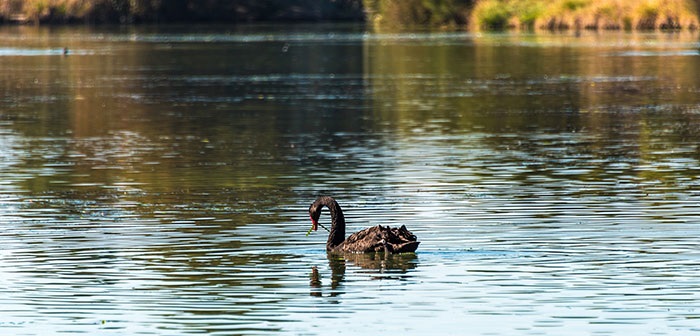Why bread is bad for our local wildlife

We might think we’re helping our wildlife out when we bring a little extra bread for them - but the truth is, we’re doing a lot more harm than good.
Birds and fish naturally feed on a range of vegetation, insects and fish.
We understand that feeding the local wildlife is a fun activity to do, and we might think we’re helping our wildlife out when we bring a little extra bread for them - after all, they seem to love it.
However, we ask that you help us help the animals and leave your food at home and let the animals collect their own feed naturally, as feeding them does a lot more harm than good.
Here are a few reasons why
Malnourishment
Bread is like junk food for birds, eels and fish. Wildlife naturally feed on a range of vegetation, insects and fish. Eating human food like bread rather than their natural diet can cause malnourishment and make them sick. It’s just extra calories!
Sickness and disease
When we feed wildlife bread and other foods, it means that the animals are getting extra calories, which means they go to the toilet more. More poo in the water leads to more bacteria and pathogens in the water, which can cause animal diseases such as avian botulism.
Water Quality
All of that uneaten bread decays in the water leaving an excess of nutrients. These extra nutrients can lead to something called algal blooms that strip the waterway of oxygen, killing any aquatic life that live in the water .
Find out more about water quality.
Weeds
Extra nutrients in the water from poo and decaying bread can lead to the growth of water weeds and algae that can choke the water ways, reducing oxygen and damage aquatic life.
Find out more about weeds.
Behaviour
Birds can become dependent on handouts and can become a nuisance and aggressive. They can also lose their natural ability to forage and parents can fail to teach their young how to find natural foods. Birds that are routinely fed can become easier to catch by predators such as cats, dogs and foxes.
Population
The overabundance of food can increase the populations of birds, fish and eels to unsustainable levels.Their numbers can become too large for the habitat in which they live.
Find out more about the wildlife in our waterways
Pests
Extra food lying around in our parks or ponds invites pests and can attract rats, mice, flies and cockroaches.
Unwanted Pets
Please do not release fish, birds or fish tank plants you no longer want into the ponds or parks. These domestic species are often larger and more aggressive than the wild species and can often dominate when released into the wild, which is bad for our native wildlife. If you no longer want your fish or birds, please find another suitable home for them.